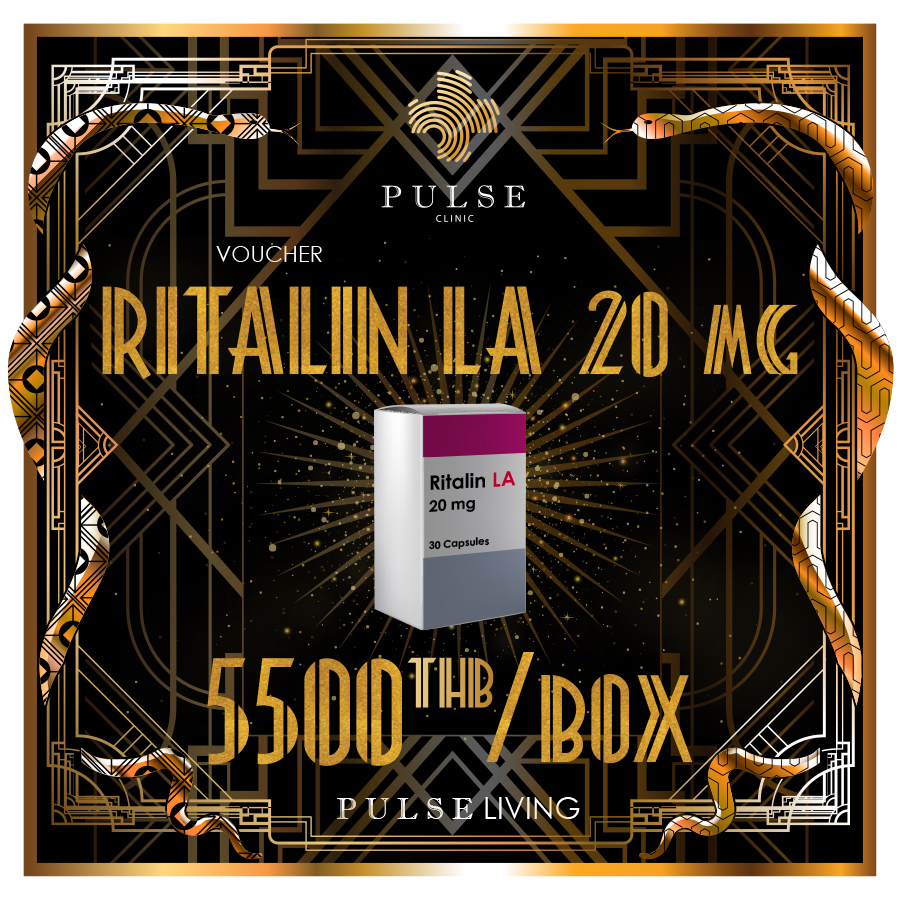ADHD (Attention Deficit Hyperactivity Disorder): Symptoms, Causes and Treatment
2923
Understand ADHD better by learning about symptoms, risk factors, treatment options, and answers to your questions. Here to help.

What is ADHD?
Attention Deficit Hyperactivity Disorder (ADHD) is a condition that influences behavior. Individuals with ADHD may appear restless, have difficulty focusing, and often act impulsively.
ADHD symptoms often become apparent early in life and may become more pronounced with significant changes, like starting school. Most diagnoses occur before age 12, though some cases are identified later in childhood or adulthood if the condition is unrecognized. Symptoms of ADHD may lessen over time, yet many adults diagnosed as children continue to face challenges. Additionally, individuals with ADHD may experience other issues, such as sleep disturbances and anxiety disorders.
Book Your Appointment Today!
Contact us at info.bkk@pulse-clinic.com or chat on your preferred platform:
![]() +66 65 237 1936
+66 65 237 1936  @PULSEClinic
@PULSEClinic ![]() PulseClinic
PulseClinic
Symptoms of ADHD
Symptoms of Attention Deficit Hyperactivity Disorder (ADHD) can be grouped into two main types of behavioural issues:
- Inattentiveness (challenges with concentration and focus)
- Hyperactivity and impulsivity
While many individuals with ADHD experience both types of symptoms, this is not always the case.
ADHD is diagnosed more frequently in boys than in girls. Girls are more likely to exhibit primarily inattentive symptoms and are less likely to display disruptive behaviours that make ADHD symptoms more noticeable. As a result, girls with ADHD may sometimes go undiagnosed.
Symptoms in adults
Defining ADHD symptoms in adults can be challenging, partly due to limited research on adult ADHD. Since ADHD is a developmental disorder, it’s generally thought that it cannot develop in adulthood without first presenting in childhood. However, symptoms that start in childhood or adolescence often persist into adulthood.
Inattention, hyperactivity, and impulsivity can manifest differently in adults than in children. For instance, hyperactivity usually lessens with age, while inattention may remain, especially as the demands of adult life grow. Adult ADHD symptoms also tend to be more subtle compared to those seen in childhood.
Experts have identified several symptoms commonly associated with ADHD in adults, including:
- Carelessness and a lack of attention to detail
- Habitually starting new tasks before completing previous ones
- Poor organizational skills
- Difficulty focusing or prioritizing tasks
- Frequently losing or misplacing items
- Forgetfulness
- Restlessness or constant edginess
- Difficulty staying quiet, often speaking out of turn
- Blurting out responses and frequently interrupting others
- Mood swings, irritability, and quick temper
- Struggles with managing stress
- Extreme impatience
- Risk-taking behaviors, sometimes with disregard for personal or others' safety, such as dangerous driving
These symptoms can vary widely in intensity and impact, often affecting an adult's life's personal, social, and professional aspects.
Related Conditions in Adults with ADHD
Similar to children and teenagers, adults with ADHD may experience several associated issues or conditions.
One of the most prevalent is depression. Other conditions that can coexist with ADHD in adults include:
- Personality disorders: These are characterised by significant deviations from typical patterns in thinking, perception, emotional response, and interpersonal relationships.
- Bipolar disorder: This condition impacts mood, leading to extreme fluctuations between highs and lows.
- Obsessive-Compulsive Disorder (OCD): This disorder is marked by persistent obsessive thoughts and compulsive behaviours.
Additionally, the behavioural challenges linked to ADHD can lead to difficulties in relationships and social interactions.
Diagnosis
Diagnosing ADHD in adults is more difficult because there's some disagreement about whether the list of symptoms used to diagnose children and teenagers also applies to adults. The specialist will ask about your present symptoms as part of your assessment. However, under current diagnostic guidelines, a diagnosis of ADHD in adults cannot be confirmed unless your symptoms have been present since childhood.
For an adult to be diagnosed with ADHD, their symptoms should also have a moderate effect on different areas of their life, such as:
- Underachieving at work or in education
- Driving dangerously
- Difficulty making or keeping friends
- Difficulty in relationships with partners
If your problems are recent and did not occur regularly in the past, you're not considered to have ADHD. This is because it's currently thought that ADHD cannot develop for the first time in adults.
Add us on Line and stay in touch.
ADHD treatment
Managing attention deficit hyperactivity disorder (ADHD) can significantly alleviate symptoms and reduce its impact on daily life.
ADHD can be addressed through medication, therapy, or a combination of both, which is often the most effective approach. Typically, a specialist like a paediatrician or psychiatrist coordinates the treatment, while a general practitioner may oversee the condition's ongoing management, which may include:
Medication: stimulants are the most commonly prescribed medications for ADHD, including:
Methylphenidate (Ritalin) and ADHD Symptoms
Methylphenidate, often prescribed for managing ADHD, works by stimulating brain function to improve focus, concentration, and control over impulses, and it also helps treat certain sleep disorders. This medication is available in both immediate-release and extended-release forms, allowing for personalised treatment options to suit individual needs.
Get Ritalin online at PULSE Clinic today
Are you struggling with focus or battling symptoms of ADHD? Ritalin might be just what you need. This prescription stimulant is widely used to treat Attention Deficit Hyperactivity Disorder (ADHD) and narcolepsy, helping people improve focus, impulse control, and attention span. If you’re curious about how Ritalin can help manage your symptoms, reach out to us for more information. We’re here to help you on your journey to better focus and a more balanced life. can contact us today for a consultation!
Order Ritalin for ADHD today!
For more information about the medication and ordering process, please contact us at pulseliving@pulse-clinic.com or chat with us on your preferred platform.
![]() +66-84-226-2569
+66-84-226-2569  @pulserx
@pulserx ![]() PulseClinic
PulseClinic
Behavioural Therapy: This approach focuses on modifying specific behaviours associated with ADHD. Techniques may include:
- Setting clear expectations and consequences.
- Developing organisational skills.
- Implementing reward systems for positive behaviours.
Psychotherapy: Therapy with a psychologist or counsellor can help address emotional and social challenges associated with ADHD. Cognitive-behavioural therapy (CBT) is often effective in managing symptoms.
Lifestyle Modifications: Changes to diet, exercise, sleep, and routines can significantly impact symptoms. Some strategies include:
- Regular physical activities.
- Establishing a consistent sleep schedule.
- Eating a balanced diet rich in nutrients.
Coaching: ADHD coaching can help individuals develop skills in organisation, time management, and goal setting.
It's important to work closely with a healthcare provider to tailor a treatment plan that fits the individual's specific needs and circumstances. Regular follow-ups and adjustments to the treatment plan may be necessary to ensure its effectiveness.
Conclusion
ADHD in adults can impact daily functioning, relationships, and work performance. Recognising that ADHD persists into adulthood is crucial for effective management. A comprehensive treatment approach that includes medication, therapy, and lifestyle adjustments can help adults with ADHD improve their focus and organization. With the right support and strategies, individuals can successfully navigate the challenges of ADHD and lead fulfilling lives.
Trust PULSE CLINIC to take care of your health like other 45000 people from over 130 countries. We provide discreet professional service with high privacy. Here to help, not to judge.
Loading...
Clinic Locations
Loading...







